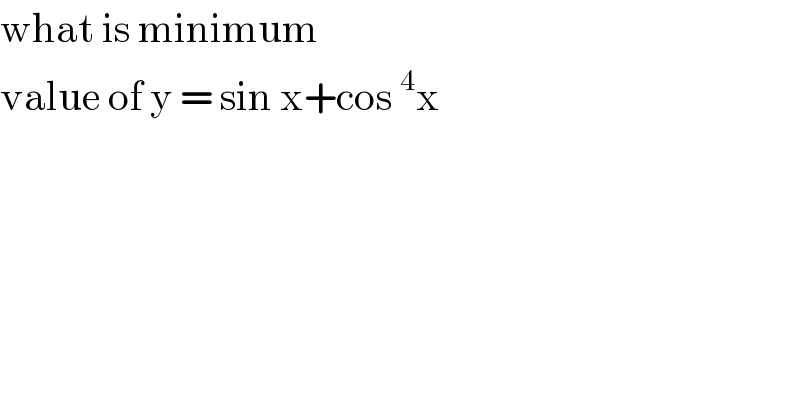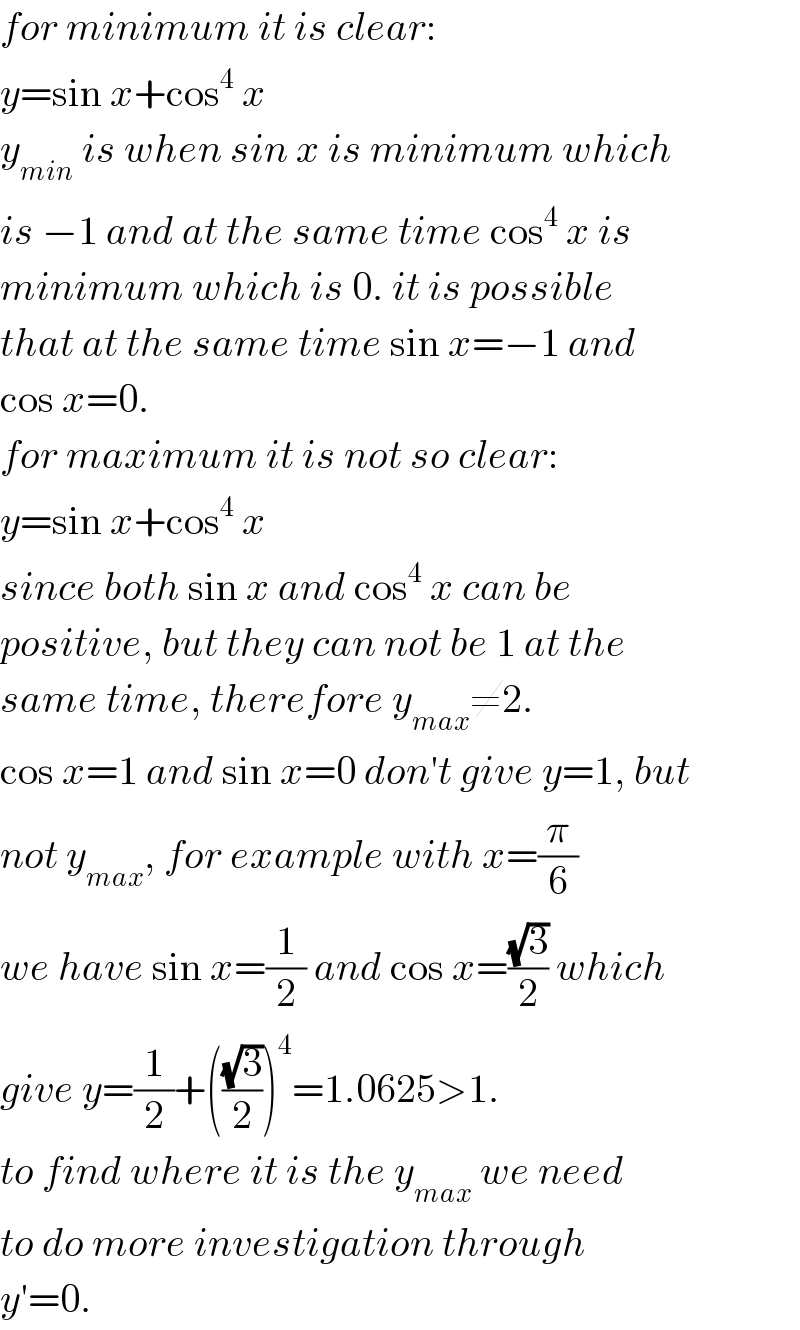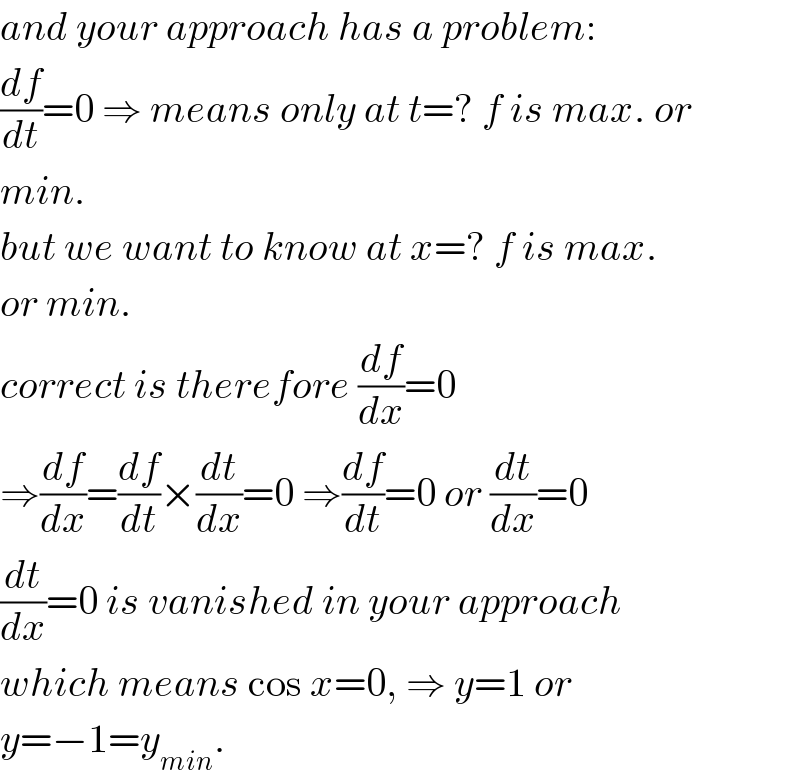
Question and Answers Forum
Question Number 78767 by jagoll last updated on 20/Jan/20

Commented by mr W last updated on 20/Jan/20

Commented by jagoll last updated on 20/Jan/20

Commented by jagoll last updated on 20/Jan/20

Commented by mr W last updated on 20/Jan/20

Commented by jagoll last updated on 20/Jan/20

Commented by mr W last updated on 20/Jan/20
![how to find maximum: y=sin x+cos^4 x y′=cos x−4 cos^3 x sin x=0 cos x(1−4 cos^2 x sin x)=0 ⇒cos x=0 ⇒....clear! ⇒sin x=±1 ⇒y_(min) =−1,y=1 ⇒1−4 cos^2 x sin x=0 ⇒1−4 (1−sin^2 x)sin x=0 ⇒sin^3 x−sin x+(1/4)=0 Δ=(−(1/3))^3 +((1/8))^2 <0 ⇒sin x=(2/(√3)) sin ((1/3)sin^(−1) ((3(√3))/8)+((2kπ)/3)) (k=0,1,2) since sin x<1, only k=0 and 1 suitable. k=0: y=1.129515 k=1: y=0.926658 y_(max) =(2/(√3)) sin ((1/3)sin^(−1) ((3(√3))/8))+{1−[(2/(√3)) sin ((1/3)sin^(−1) ((3(√3))/8))]^2 }^2 ≈1.129515](Q78779.png)
Commented by mr W last updated on 20/Jan/20

Commented by jagoll last updated on 20/Jan/20

Commented by mr W last updated on 20/Jan/20

Commented by mr W last updated on 20/Jan/20

Commented by jagoll last updated on 20/Jan/20

Commented by jagoll last updated on 20/Jan/20

Commented by mr W last updated on 20/Jan/20
![f=t+(1−t^2 )^2 and t=sin x (df/dx)=(df/dt)×(dt/dx)=[1−4t(1−t^2 )]×cos x=0 ⇒cos x=0 or ⇒t^3 −t+(1/4)=0](Q78792.png)
